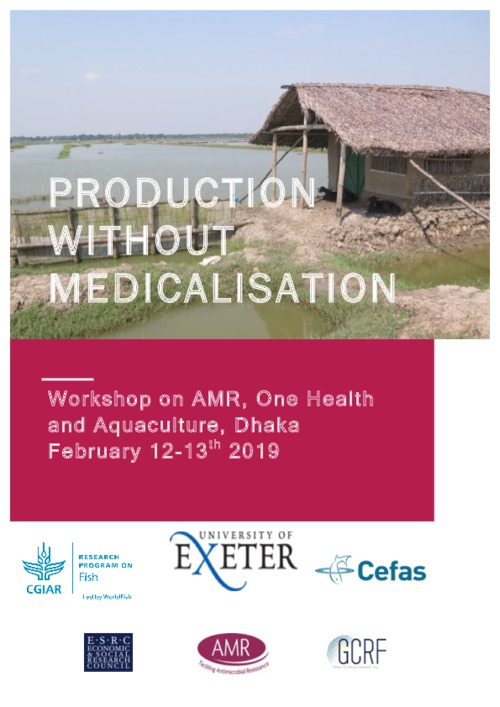Production without Medicalisation: Workshop report on AMR, One Health and Aquaculture, Dhaka February 12-13th 2019

Antimicrobial resistance (AMR), or the ability of microbes to resist the effects of medicines and other chemicals that are used to control them, presents a formidable threat to health and sustainable development. Antimicrobial treatments and medicines are used within human health and in terrestrial and aquatic food production to manage infection and sometimes to improve farm production. Resistance can emerge in people, in animals and in the environment, and may spread between people and animals. AMR is a ‘one health’1issue wherein the health of people, animals and the environment are interlinked. The development of resistance in one location and in one setting can affect the health of people and animals more broadly. Likewise, efforts to combat resistance require efforts in all areas. In Bangladesh the burden of infectious disease is significant across all sectors and there is need for a joined up approach to health promotion and to managing AMR risks. Where recent progress has been made there are also lessons to learn and to share within and outside the country. Aquaculture is recognized as a key site for the emergence and transmission of AMR. The risk will relate to a number of issues including disease burden and health management practices; direct and indirect, purposeful and inadvertent use of antimicrobial treatments; feed practices, the use of waste materials and inputs from other farming sectors; transfers of water and so on.
Permalink
Date Available
Type
Countries
Copyright
CC-BY-NC-4.0
Research Themes
Language